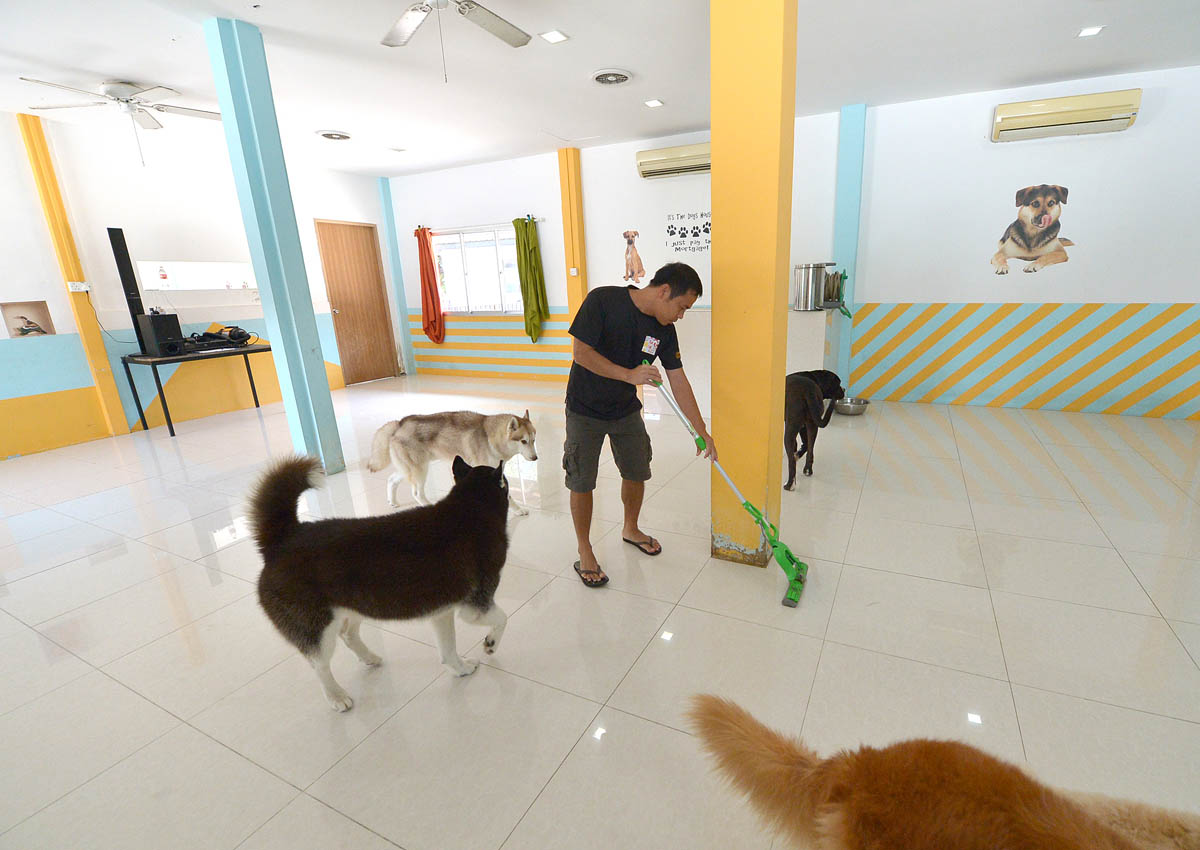A daycare centre for dogs re-opened its doors to canine boarders on Thursday after a month-long closure to stem what was believed to be an outbreak of a serious bacterial infection.
The Agri-Food and Veterinary Authority (AVA) is allowing Sunny Heights to accept new dogs, as it is taking steps to ensure these dogs do not come in contact with those already at the centre.
It will continue to monitor the situation.
Investigators are still working to determine how canine visitors to Sunny Heights might have developed suspected leptospirosis.
The disease is usually spread by rodents, but the National Environment Agency (NEA) says no rat activity has been detected at Sunny Heights.
Environmental samples taken by the AVA have tested negative for pathogenic species of leptospires.
In addition, six rat traps deployed since the surge of suspected leptospirosis cases early last month have remained empty, said Sunny Heights owner Derrick Tan.
The AVA told The Straits Times it is still investigating the possible sources of infection.
“While there is currently no evidence linking leptospirosis cases associated with Sunny Heights to rodents, in general, infected rodents are known to be the primary source of leptospirosis, through their urine,” it said.
The AVA was notified of 27 cases of suspected canine leptospirosis between Jan 1 and last Monday, 15 of which were associated with Sunny Heights.
As of Thursday, three of the 15 have tested positive for leptospirosis, and test results from a second round of sampling are pending.
Of the 15 dogs which have died or been euthanised after developing symptoms similar to leptospirosis this year, six had visited the centre.
AVA had earlier cautioned that bacteria can remain in the soil or stagnant water for months, making it difficult to completely eliminate the risk of transmission from the environment.
It also urged dog owners to keep their dogs up to date with their vaccinations, which can reduce the chance of the dog being infected and prevent the excretion of bacteria in the dog’s urine.
The centre has also taken other precautions on top of existing measures, like disinfecting the premises twice daily, said Mr Tan, who estimated the month-long closure has cost the centre at least $80,000.
Other than segregating the dogs, staff must step into a bucket of disinfectant before entering dog holding areas.
The swimming pool has also been drained and disinfected.
Mr Tan, who is also president of animal welfare group Voices for Animals, keeps 10 rescued dogs at Sunny Heights as part of the group’s scheme to let potential adopters interact with them.
Prior to the closure, both the rescued dogs and those at daycare were kept in the same area to allow the animals to socialise.
Responding to allegations from netizens that the disease had come from the rescued animals, Mr Tan said on Thursday that initial tests showed none of them had leptospirosis.
“They were vaccinated and quarantined before they were introduced to the other dogs,” he said.
But as an extra precaution, daycare and rescued dogs are now kept in separate buildings while the authorities conduct further tests.
Before the outbreak, Sunny Heights welcomed an average of 50 dogs every day. That number has dropped to 10 since its re-opening.
Mr Tan urged all dog owners to get their pets vaccinated, as disease-causing bacteria can be found in public places such as parks.
Shipping officer Annie Lam, 47, agreed. Said Mrs Lam, who has taken her dog back to Sunny Heights: “I am very happy with their facilities and don’t feel insecure about sending Jacob in.
“Pet owners should also do their part and ensure their pets are fully vaccinated.”

This article was first published on August 6, 2016.
Get a copy of The Straits Times or go to straitstimes.com for more stories.






